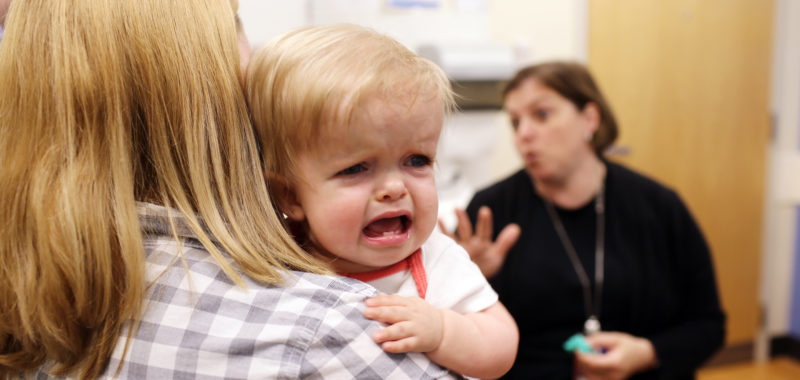By now, many parents have probably heard about the allergy study that was published in the New England Journal of Medicine, suggesting the early introduction of peanut protein decreased the frequency of the development of peanut allergies.
The validity of those findings aside, as a pediatric otolaryngologist, I would like to heed a warning to parents who might be considering introducing peanuts to babies and young children.
Peanuts are the number one item that babies and young children choke on. The American Academy of Pediatrics (AAP) recommends that parents avoid feeding their children nuts until the age of 4.
The reasons is that infants do not have molar teeth and are therefore not able to chew the nut into a size safe enough to swallow. As an alternative, the AAP suggests that parents spread a small layer of peanut butter on a cracker once a child is at least 12 months old.
In addition to the choking risks, there is a possibility that a peanut could enter the lungs and not the stomach (meaning that they could aspirate). This is because the coordination of the swallowing muscles in babies and infants is immature.
When food enters the lungs, serious blockage can occur to breathing and the material must be removed as soon as possible so that there is no prolonged decrease in the child’s oxygen. Removal of the food requires a trip to the emergency and operating rooms.
If you are considering exposing your baby or young child to peanuts, please consult with your primary doctor about weaning and introductions of food during this process.





